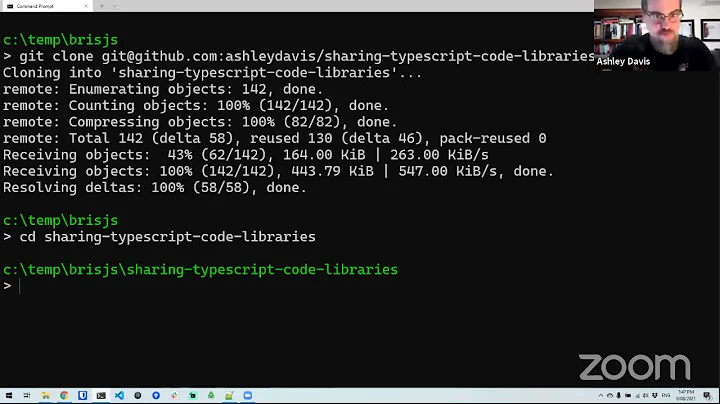What TypeScript type should I use to reference the match object in my props?
Solution 1
You don't need to add it explicitly. You can use RouteComponentProps<P> from @types/react-router as a base interface of your props instead. P is type of your match params.
import { RouteComponentProps } from 'react-router';
// example route
<Route path="/products/:name" component={ProductContainer} />
interface MatchParams {
name: string;
}
interface Props extends RouteComponentProps<MatchParams> {
}
// from typings
import * as H from "history";
export interface RouteComponentProps<P> {
match: match<P>;
location: H.Location;
history: H.History;
staticContext?: any;
}
export interface match<P> {
params: P;
isExact: boolean;
path: string;
url: string;
}
Solution 2
To add onto @Nazar554's answer above, the RouteComponentProps type should be imported from react-router-dom, and implemented as follows.
import {BrowserRouter as Router, Route, RouteComponentProps } from 'react-router-dom';
interface MatchParams {
name: string;
}
interface MatchProps extends RouteComponentProps<MatchParams> {
}
Further, to allow for re-usable components, the render() function allows you to pass only what the component needs, rather than the entire RouteComponentProps.
<Route path="/products/:name" render={( {match}: MatchProps) => (
<ProductContainer name={match.params.name} /> )} />
// Now Product container takes a `string`, rather than a `MatchProps`
// This allows us to use ProductContainer elsewhere, in a non-router setting!
const ProductContainer = ( {name}: string ) => {
return (<h1>Product Container Named: {name}</h1>)
}
Solution 3
Simple solution
import { RouteComponentProps } from "react-router-dom";
const Container = ({ match }: RouteComponentProps<{ showId?: string}>) => {
const { showId } = match.params?.showId;//in case you need to take params
}
Solution 4
The problem was that even after creating an interface for the match<Params> the type warning was still there. Here is the code which worked for me:
interface MatchParams {
firstParam: string;
optionalParam?: string;
}
export const CreditPortfolioDetail: FC<RouteComponentProps<MatchParams>> = (props) => {
const { firstParam, optionalParam} = props.match.params;
// ...
}
Related videos on Youtube
Nicolas Blanco
Ruby on Rails developer and web enthusiast. Go to my Github account https://github.com/nicolasblanco to see some of my open source work... I've contributed to many popular open source Ruby/Rails projects (Devise, Bundler, Mongoid, Authlogic, ThinkingSphinx, etc.)
Updated on September 26, 2021Comments
-
Nicolas Blanco over 2 years
In my React containers/component, which type could I use to reference the
matchpart included by React Router DOM?interface Props { match: any // <= What could I use here instead of any? } export class ProductContainer extends React.Component<Props> { // ... } -
Glstunna over 4 yearsThe problem with this is that Typescript then expects every use of that component to be actually passed in location history props etc. RouteComponentProps should have those props as optional. Have to wrap with Partial.
-
 Rey Wang over 4 yearsAwesome! nice supplement
Rey Wang over 4 yearsAwesome! nice supplement -
 Toskan about 4 years@Glstunna thanks for making me aware, how would that look like with partial? As well OP: please include your imports.
Toskan about 4 years@Glstunna thanks for making me aware, how would that look like with partial? As well OP: please include your imports. -
 Leonardo Viada about 3 yearsTypeScript keeps asking me to pass the whole props set down to the component (`<MyComp history={...} location={...} .../>, I have the same code as seen above.
Leonardo Viada about 3 yearsTypeScript keeps asking me to pass the whole props set down to the component (`<MyComp history={...} location={...} .../>, I have the same code as seen above. -
Nazar554 about 3 years@LeonardoViada Try passing the component using
<Route component={MyComp} /> -
 chrisl08 almost 3 yearsWhat is FC ? FC<RouteComponentProps<MatchParams>>
chrisl08 almost 3 yearsWhat is FC ? FC<RouteComponentProps<MatchParams>> -
Mike Mansell almost 3 yearsIt's React.FC, which is a type alias for React.FunctionComponent. Your function is actually a FunctionComponent, and by explicitly stating that, you also get the children property automatically added to your props (similar to how RouteComponentProps automatically adds location, match, etc.)










